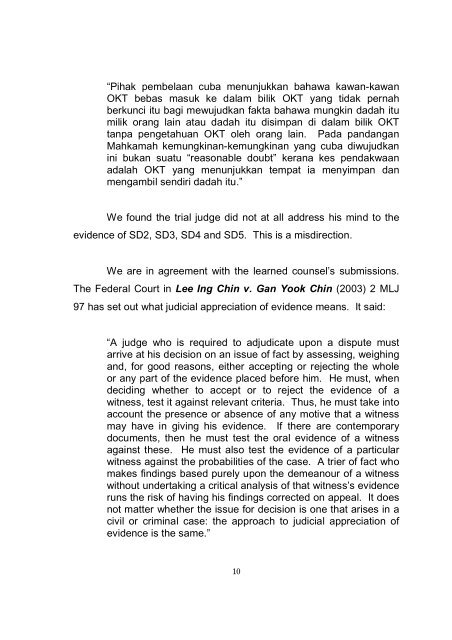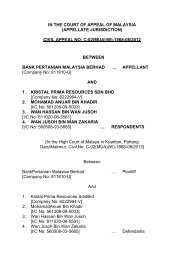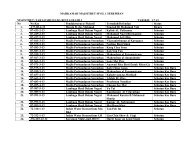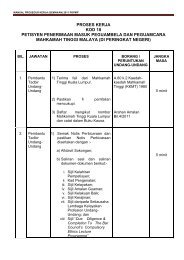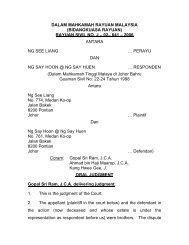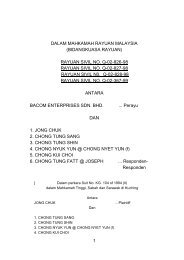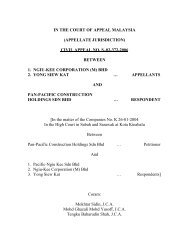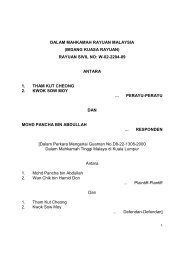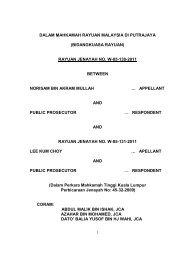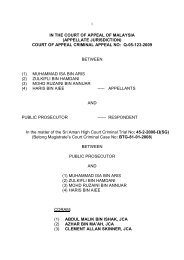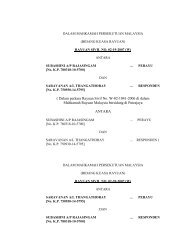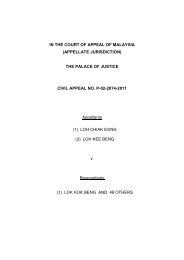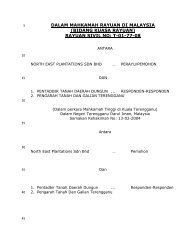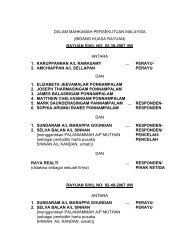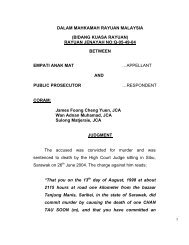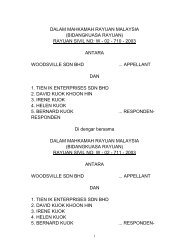RAYUAN JENAYAH NO: N-05-154-2010
RAYUAN JENAYAH NO: N-05-154-2010
RAYUAN JENAYAH NO: N-05-154-2010
You also want an ePaper? Increase the reach of your titles
YUMPU automatically turns print PDFs into web optimized ePapers that Google loves.
“Pihak pembelaan cuba menunjukkan bahawa kawan-kawan<br />
OKT bebas masuk ke dalam bilik OKT yang tidak pernah<br />
berkunci itu bagi mewujudkan fakta bahawa mungkin dadah itu<br />
milik orang lain atau dadah itu disimpan di dalam bilik OKT<br />
tanpa pengetahuan OKT oleh orang lain. Pada pandangan<br />
Mahkamah kemungkinan-kemungkinan yang cuba diwujudkan<br />
ini bukan suatu “reasonable doubt” kerana kes pendakwaan<br />
adalah OKT yang menunjukkan tempat ia menyimpan dan<br />
mengambil sendiri dadah itu.”<br />
We found the trial judge did not at all address his mind to the<br />
evidence of SD2, SD3, SD4 and SD5. This is a misdirection.<br />
We are in agreement with the learned counsel’s submissions.<br />
The Federal Court in Lee Ing Chin v. Gan Yook Chin (2003) 2 MLJ<br />
97 has set out what judicial appreciation of evidence means. It said:<br />
“A judge who is required to adjudicate upon a dispute must<br />
arrive at his decision on an issue of fact by assessing, weighing<br />
and, for good reasons, either accepting or rejecting the whole<br />
or any part of the evidence placed before him. He must, when<br />
deciding whether to accept or to reject the evidence of a<br />
witness, test it against relevant criteria. Thus, he must take into<br />
account the presence or absence of any motive that a witness<br />
may have in giving his evidence. If there are contemporary<br />
documents, then he must test the oral evidence of a witness<br />
against these. He must also test the evidence of a particular<br />
witness against the probabilities of the case. A trier of fact who<br />
makes findings based purely upon the demeanour of a witness<br />
without undertaking a critical analysis of that witness’s evidence<br />
runs the risk of having his findings corrected on appeal. It does<br />
not matter whether the issue for decision is one that arises in a<br />
civil or criminal case: the approach to judicial appreciation of<br />
evidence is the same.”<br />
10


